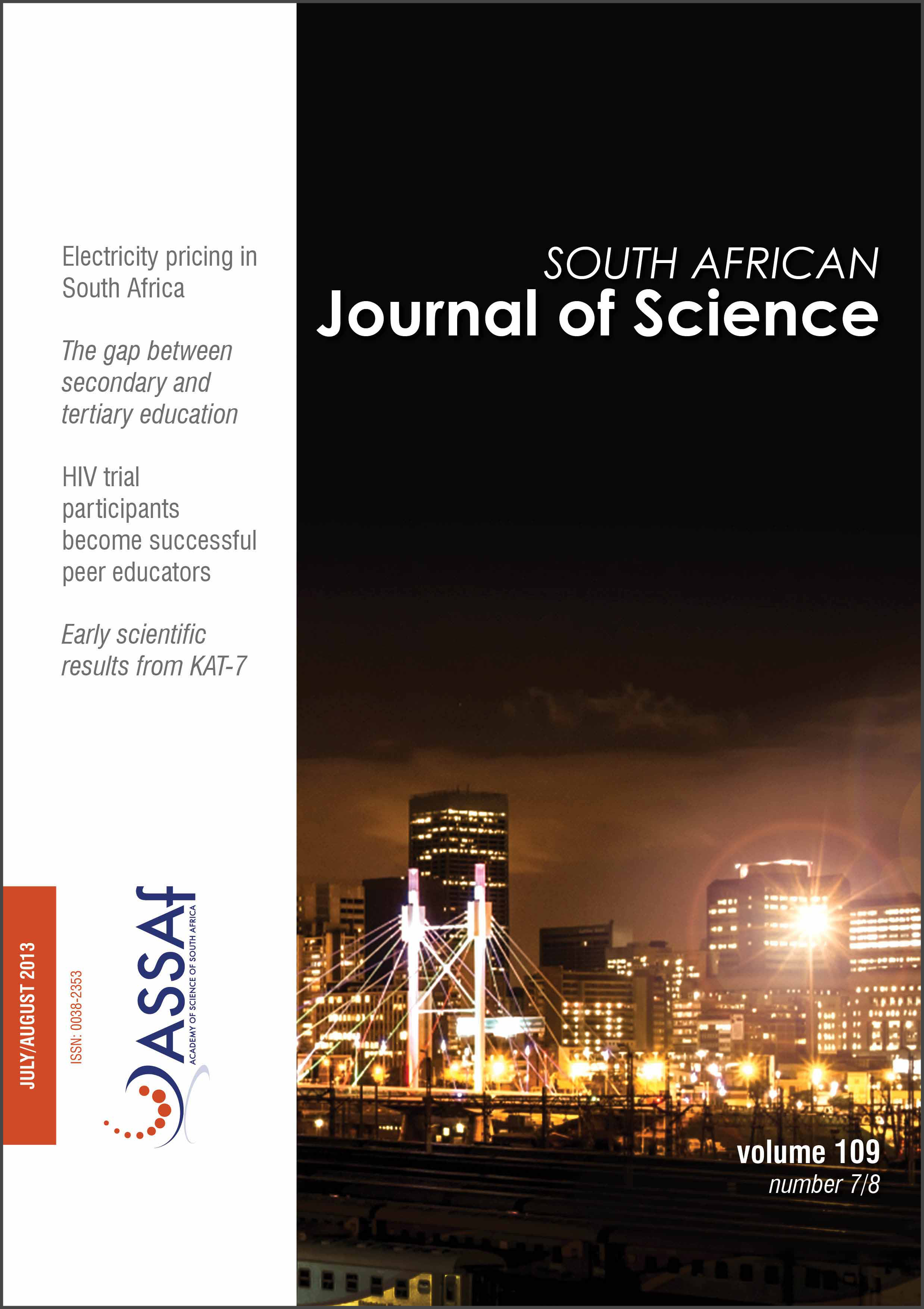Degradation of terephthalic acid by a newly isolated strain of Arthrobacter sp.0574
DOI:
https://doi.org/10.1590/sajs.2013/20120019Keywords:
terephthalic acid, DNA, Arthrobacter sp, resting cell, degradationAbstract
Terephthalic acid is an important industrial chemical but its production typically generates 3–10 tons of wastewater, which is a significant source of pollution. Although recent research has shown that terephthalic acid can be degraded by physical and chemical methods, these methods are complex and expensive. Microbial degradation of terephthalic acid is a popular alternative because it is environmentally friendly. We isolated a Gram-positive strain capable of growing aerobically on terephthalic acid as the sole carbon and energy source. It was identified as Arthrobacter sp. by 16S rDNA sequencing and its physiological and biochemical characteristics. For terephthalic acid degradation, the optimal temperature of the resting cells was 30 °C, optimal shaking speed was 150 rpm, the most suitable pH was 7.0, and the ability to degrade terephthalic acid was inhibited by concentrations of terephthalic acid above 10 g/L.
Published
Issue
Section
License

All articles are published under a Creative Commons Attribution 4.0 International Licence
Copyright is retained by the authors. Readers are welcome to reproduce, share and adapt the content without permission provided the source is attributed.
Disclaimer: The publisher and editors accept no responsibility for statements made by the authors
How to Cite
- Abstract 618
- PDF 694
- EPUB 164
- XML 193













.png)